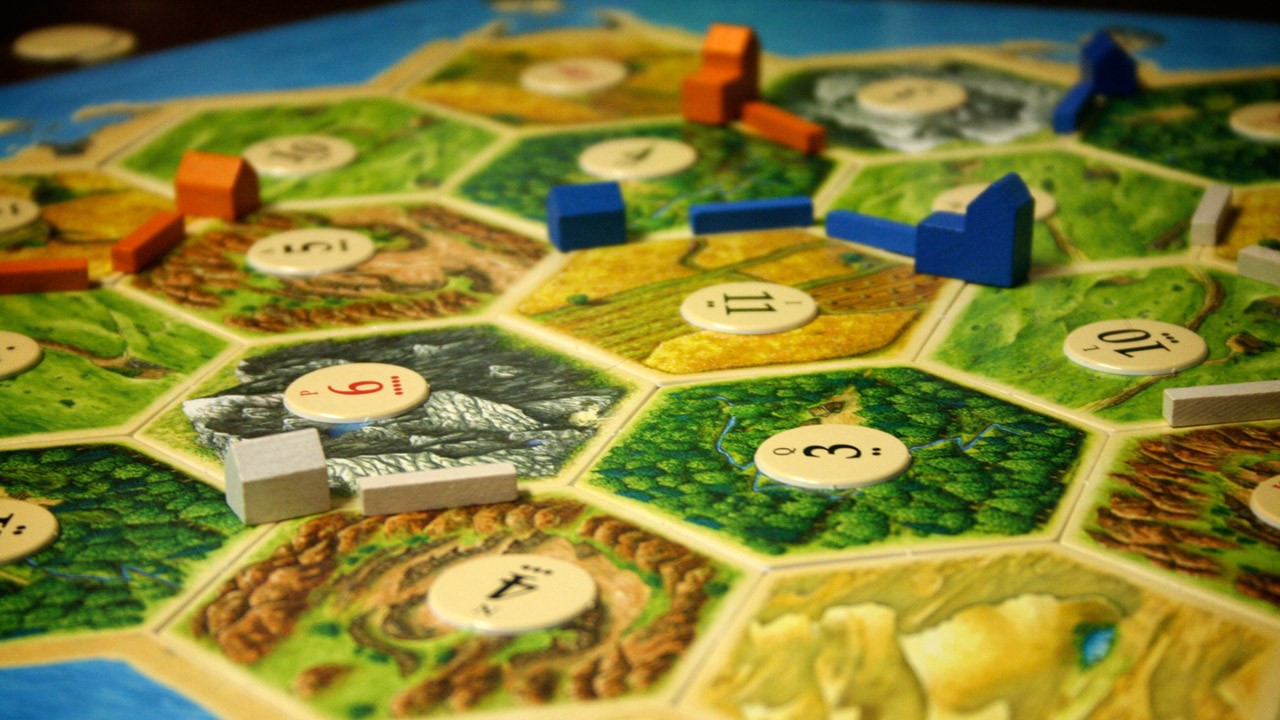There has been something of a resurgence of tabletop gaming in recent years. Video games are more accessible than ever before on consoles, computers and mobile phones but instead, more and more people are swapping the laptop for the tabletop when it comes to gaming. Titles like Settlers of Catan, Risk and Days of Wonder’s Ticket To Ride have all grown in popularity in the last few years attracting players old and new.
There are now thousands of new tabletop games being released yearly, each with their own set of rules and playing intricacies. Player skill and game knowledge will have an impact on every single one of them but one thing which varies greatly is the impact of luck. Luck can take many different forms in tabletop gaming but perhaps the best-known example of all is the use of dice.
The roll of a standard dice six-sided dice creates six different scenarios for the game to enter into. That only increases if a game has additional die and items such as random chance cards. Some games involve very little luck such as chess and go, while others involve far more acts of chance like Monopoly and Battleship.
The latter titles are certainly more popular than the former which is why so many game designers use luck in their titles. Luck-dependent games generally tend to attract a larger and more diverse player base than their skill-dependent counterparts. There is also a far greater chance of excitement when luck is involved. Random acts of chance can create incredibly unique situations as games adapt to the entropy of a dice throw. This is why games giants like Hasbro prefer luck-dependent titles. A game is almost inevitably going to be more successful financially if, for example, every member of the family can play from the moment it is unboxed.
But that’s not to say that luck is a guarantee of excitement. There’s a reason why the 2009 Channel 5 show Heads or Tails – a game show in which contestants could win money by simply guessing the outcome of a coin flip – didn’t become a smash TV hit. For a game to be truly successful it must attract both casual mainstream players and a devoted, core following. No tabletop gamer wants to sit around for hours on end and guess the outcome of a flipping coin because the luck shouldn’t outweigh the skill. That is more common in children’s board games but for more mainstream titles, the better players should typically win more often than the worse ones.
So, an element of compromise is needed. Games need to have enough luck to attract a larger player base and keep things exciting, but not so much that the better players are just as likely to lose as the worst. Perhaps the best example of this being utilised in a tabletop game is poker.
The classic card game has seen a marked rise in popularity in recent years but generally has a reputation as a game more about luck than skill. Even traditional gambling companies like Betway have introduced video poker into their online games range, following in the footsteps of the popular rise of this well known land based game. Poker and Las Vegas have historically gone hand-in-hand but the game is about far more than which player draws the best cards. Poker has an incredibly high skill ceiling but the luck of the draw is one of the main reasons why the game is so exciting as a spectator sport. The World Series Of Poker attracts big viewership figures for ESPN in America because fans know that one card can change everything.
This can be seen when it comes to the popularity of tabletop games in more mainstream places. The games which often draw the most attention are the more luck-dependent titles like Kosmos’ Settlers of Catan and Z-Man Games’ Pandemic. These two have certainly more mainstream press from sites like The Independent while the titles which depend far more on skill and game knowledge than luck have not. It’s one of the reasons why a game like Risk is more popular and better known than a similar but far less luck-dependent title like Days Of Wonder’s Small World. Can a tabletop game really be considered a success if it only caters to a small audience?
So, the inclusion of luck is clearly an important part of a tabletop game’s success. Chance creates exciting and new possibilities and as a result, broadens the appeal of a title. However, that comes with risk. There’s a reason why chess is a more popular pastime than rock-paper-scissors and that’s because more serious players lose interest with games that reward luck over skill. It’s difficult to strike a balance between the two extremes but many games including poker have achieved the feat.







24 pings
Skip to comment form ↓